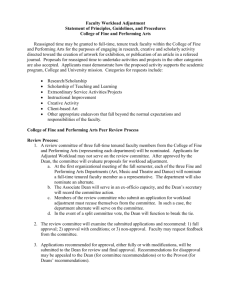Faculty Workloads Term
advertisement
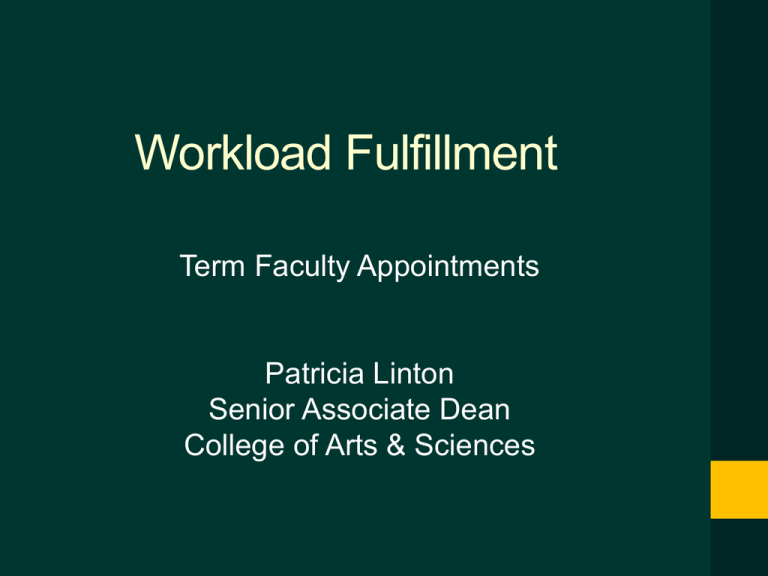
Workload Fulfillment Term Faculty Appointments Patricia Linton Senior Associate Dean College of Arts & Sciences Workload Agreement Document that establishes expectations of the faculty member across the academic year (Fall & Spring). Basis of faculty evaluation. Constraints affecting Term Appointments Not a Continuing Appointment – each term appointment is based upon defined needs and resources. Term appointments are expected to end. Evaluation and reappointment are separate decisions. Successful fulfillment of the workload is critical, but not the only basis for a new appointment. Each term appointment must fulfill a specific need defined by the workload. Development of Term Workload Agreement 1. Workload proposal initiated by department chair or program administrator 2. Approved by Dean & Provost 3. Faculty member may or may not have input in the development of the workload Workload Proposal All components of a term workload are contingent upon need. Workload components may vary from semester to semester and from one contract period to another. Components, as needed: Teaching (most UAA term appointments are teachingintensive Service (as applicable) Research/Creative activity (as applicable) Teaching Assignments According to both faculty Collective Bargaining Agreements, teaching encompasses (among other things) Delivery of instruction (whatever the format) Preparation of course materials Development or revision of curriculum General advising of students “Other activities benefitting students’ academic development.” Service No standard template for workload assignments Reassessments of essential service in light of fiscal constraints Likely that service components of workloads (if applicable) will become more specific. Do not accept service activities not assigned by the Dean on the expectation that service will be compensated in a revised workload. Midyear Revision of Workload Proposed changes in the actual workload require revision of the workload document and formal approval by the chair or program administrator and Dean or Dean’s designee. Change in teaching – common for specific courses to change, but workload agreement should be corrected. Requests for changes or additions to the workload should be discussed with Chair and approved by the Dean before commitment. Evaluation Annual review required. Each MAU responsible for developing rules and procedures. UAA: Annual Activity Report (CV, Annual Activity Report Form with brief self-evaluation) Reminders Any increase or overload in scope of work must be authorized by the Dean, Director, or Dean’s designee. Do not independently accept expanded assignments on the assumption that compensation will be available. Many term appointments are renewed. However, successful past performance does not guarantee a new appointment. Needs and resources must be documented for each term appointment, each time. Every term of hire is a discrete contract.
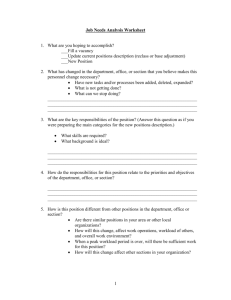
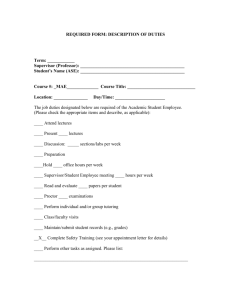
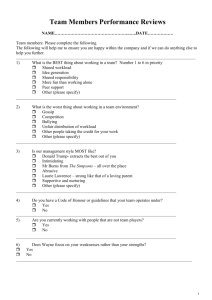
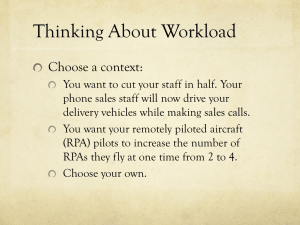
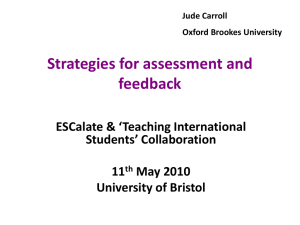
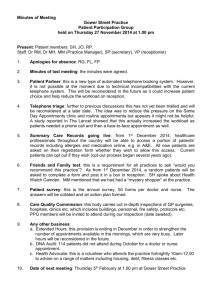
![Guidelines for Academic Workload Allocation[1]](http://s3.studylib.net/store/data/007357775_1-c08378375a61bf04d5de327b7ce434b5-300x300.png)

